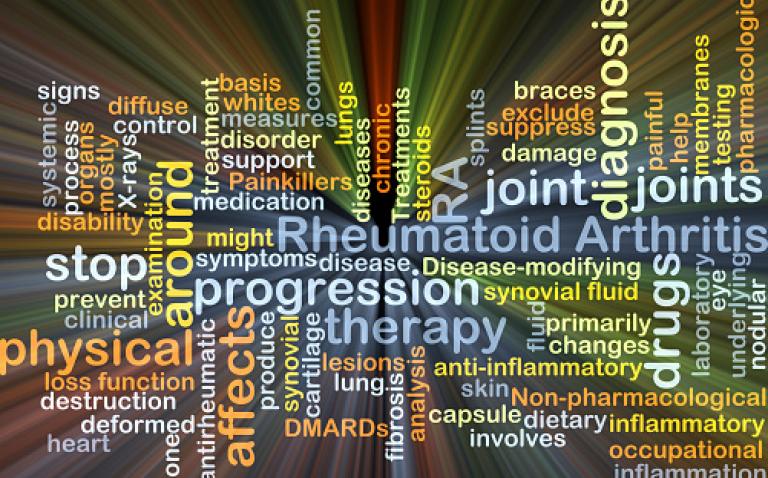Janssen-Cilag International NV has announced long-term results from SIRROUND-T, a pivotal Phase III study that showed sirukumab improved the signs and symptoms of moderately to severely active rheumatoid arthritis (RA) through 52 weeks of treatment in adult patients with an inadequate response and/or intolerance to anti-tumour necrosis factor (TNF)-alpha treatments.1
This is a typically difficult-to-treat population, representative of clinical practice where up to 40% of RA patients do not respond to biologics.2 This study and other data from the SIRROUND clinical programme will be presented in 11 abstracts accepted for presentation at the Annual European Congress of Rheumatology (EULAR) 2017 in Madrid, Spain.
Data from the SIRROUND-T study showed that more than half of patients receiving either sirukumab 50 mg or 100 mg achieved at least a 20% improvement in the signs and symptoms of disease (ACR20) at week 52 (54.3% sirukumab 50 mg; 59.3% sirukumab 100 mg).1 Patients receiving sirukumab also demonstrated clinically meaningful improvements from baseline through week 52 in quality of life measures, as demonstrated by the health assessment questionnaire disability index (HAQ-DI) and the short form-36 (SF-36) health survey, for patient-reported outcomes in both physical and emotional well-being.1
The incidences of adverse events (AEs) and serious AEs were comparable between sirukumab 50 mg (79.6% and 14.2%, respectively) and sirukumab 100 mg (81.3% and 13.2%, respectively).
“The long-term efficacy of sirukumab as shown in the SIRROUND-T study is encouraging considering the study includes a difficult-to-treat patient population. More than 60% of patients in the trial had previously received two or more biologics, including anti-TNFs and treatments with other mechanisms of action. This is representative of real world clinical practice,” commented Professor Daniel Aletaha, Consultant Rheumatologist and Associate Professor at the Medical University of Vienna. “Rheumatoid arthritis can be a very heterogeneous disease and therefore additional therapeutic options, like sirukumab, are needed.”
In a post-hoc analysis from four sirukumab Phase III studies presented at the congress, investigators reported that treatment with sirukumab consistently increased levels of haemoglobin in adult patients with moderately to severely active RA, thus reducing by week 16 the proportion of patients with anaemia, which is common in rheumatoid arthritis.3
Two additional poster presentations evaluated improvements in Health-Related Quality of Life (HRQoL) compared with an age/gender matched normal population in patients with RA and an inadequate response to conventional disease-modifying anti-rheumatic drugs (DMARDS) and anti-TNFs (SIRROUND-D and SIRROUND-T Phase III studies, respectively). The post-hoc analyses found that treatment with sirukumab resulted in greater and clinically meaningful improvements in HRQoL at week 24 compared with patients receiving placebo (P<0.001), with similar results observed across sirukumab doses (50 mg every 4 weeks and 100 mg every 2 weeks).4,5
An oral presentation of a post-hoc analysis (SIRROUND-D) highlighted the effect of sirukumab plus methotrexate on circulating biomarkers and demonstrated that in addition to inhibiting radiographic progression (bone destruction measured on x-ray images), treatment with sirukumab strongly inhibited biomarkers of bone and tissue destruction, and enhanced markers of bone formation.6
“The data presented at this year’s congress support the profile of sirukumab in the treatment of moderately to severely active adult rheumatoid arthritis. While patient outcomes have improved in the last few decades with the advent of new RA treatments, there are still many patients whose disease is not effectively managed and continues to progress. We believe that sirukumab has the potential to offer an important new alternative treatment for patients,” said Bogdana Coudsy MD, European Medical Affairs Director Immunology, Janssen EMEA.
References
- Aletaha, D., et al. Efficacy and safety of sirukumab in patients with active rheumatoid arthritis refractory to anti-TNF therapy (SIRROUND-T): a randomised, double-blind, placebo-controlled, parallel-group, multinational, phase 3 study. Lancet. 2017 Mar 25;389(10075):1206-1217.
- Rubbert-Roth, A., Finckh, A. Treatment options in patients with rheumatoid arthritis failing initial TNF inhibitor therapy: a critical review. Arthritis Research & Therapy. 2009;11(Suppl1):S1.
- Loza, M., et al. Sirukumab Treatment Reduces Levels of Iron-Regulatory Proteins and Ameliorates Inflammation-Associated Anemia in Rheumatoid Arthritis Patients. Abstract presented at the Annual European Congress of Rheumatology (EULAR) 2017 in Madrid, Spain. Abstract number: FRI0243.
- Strand, V., et al. Sirukumab Leads To Significant And Clinically Meaningful Improvements In Health-Related Quality Of Life That Meet Or Exceed Normative Values In Patients With Rheumatoid Arthritis Refractory To TNF Inhibitors In Post Hoc Analyses Of A Phase 3 Trial. Abstract presented at the Annual European Congress of Rheumatology (EULAR) 2017 in Madrid, Spain. Abstract number: SAT0182.
- Strand, V., et al. Improvements In Health-Related Quality Of Life With Sirukumab Are Statistically Significant, Clinically Meaningful, And Meet Or Exceed Normative Values In Rheumatoid Arthritis Patients With Inadequate Response To Disease-Modifying Antirheumatic Drugs: Post Hoc Analyses Of A Phase 3 Trial. Abstract presented at the Annual European Congress of Rheumatology (EULAR) 2017 in Madrid, Spain. Abstract number: FRI0246.
- Dasgupta, B., et al. The Effect Of Sirukumab Plus Methotrexate On Circulating Biomarkers Of Joint Destruction In Moderate To Severe Rheumatoid Arthritis Patients From The SIRROUND-D Phase 3 Study. Abstract presented at the Annual European Congress of Rheumatology (EULAR 2017) in Madrid, Spain. Abstract number: OP0103.










